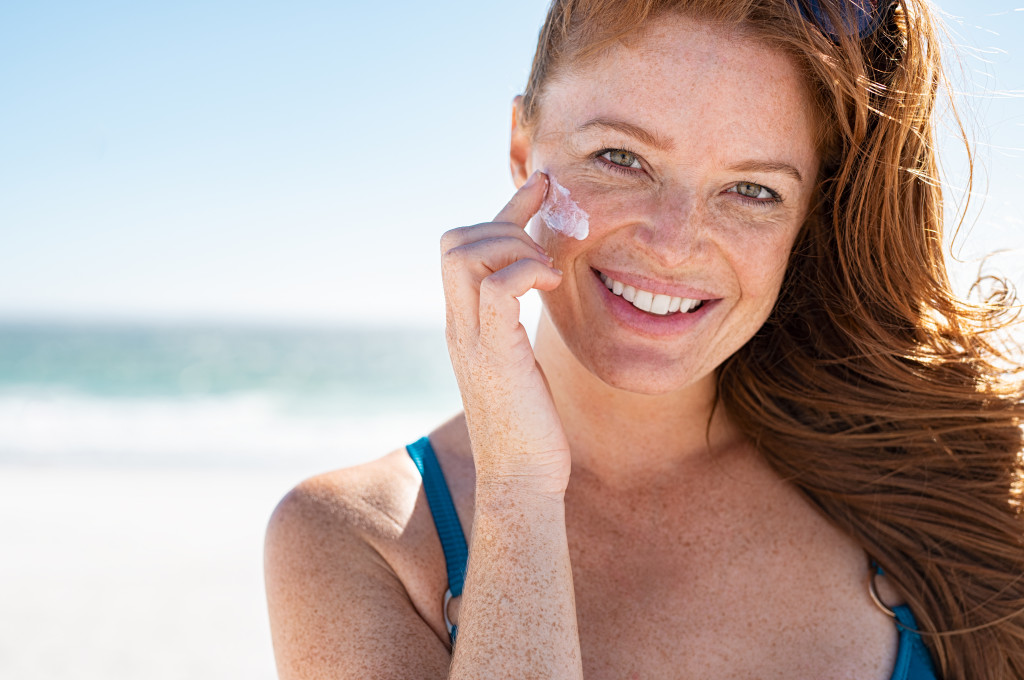Skin pigmentation or hyperpigmentation can be a difficult issue to deal with, especially in humid climates. Fortunately, there are several methods you can use to reduce the appearance of skin pigmentation. From professional services to skincare products, here are some things that can help you with this.
Visit an aesthetic clinic.
This will ensure you get the best advice and treatment for your particular case of skin pigmentation. Experienced dermatologists can diagnose your condition and develop individualized treatment plans for your particular needs. This means that you will get the best advice tailored specifically for you instead of a generic solution that may not be as effective. Plus, with an aesthetic clinic, you will have access to ongoing support during the entire process so that any changes in your condition can be addressed quickly and effectively.
Aesthetic clinics offer access to various advanced treatments and chemical peels that can treat various skin pigmentation types. These treatments are more effective than over-the-counter options because they target the underlying causes of discoloration. In some cases, they also help reduce inflammation, improve texture, and even out your overall complexion. Your doctor may also suggest lifestyle changes to better manage or prevent further discoloration from occurring in the future.
Try home remedies.
Suppose you are looking to handle this issue without using harsh chemicals. In that case, there are some natural ways to treat skin pigmentation.
For example, aloe vera gel is one of the oldest home remedies for this. The gel contains compounds like aloin, which helps lighten skin tone. It also has anti-inflammatory properties that help soothe irritated skin and reduce redness. To use this, just apply it directly to the area with pigmentation and leave it on overnight.
Apple cider vinegar is another popular remedy for treating skin pigmentation. ACV has antibacterial and antiseptic properties that reduce dark spots and even out your overall skin tone. To use it, mix one part ACV with three parts water, dip a cotton ball into the mixture, and apply it to the affected area twice daily until you see results. Make sure to dilute the vinegar before applying it to your face because undiluted ACV can irritate your skin.
Lemon juice is also an excellent natural remedy because it contains citric acid, which helps fade dark spots. To use lemon juice on your skin, mix equal amounts of lemon juice and water in a bowl, then apply the mixture to the affected areas using a cotton pad or swab twice daily until you see results. Be sure to avoid contact with your eyes when applying lemon juice, as this could cause irritation or a burning sensation in them.
Coconut oil is another natural remedy that can help reduce dark spots on your face due to its moisturizing properties, which help hydrate dry patches of skin while lightening discolored areas caused by sun damage or injury. You can use this in the same way as lemon juice. Simply apply a small amount directly onto the affected area twice daily.

Apply SPF every day.
The sun can be incredibly damaging to your skin, so applying sunscreen daily is an essential step to prevent further skin pigmentation. Sunscreen blocks the harmful UVA and UVB rays that can cause skin pigmentation. UVA rays penetrate deep into the skin and can cause wrinkles, age spots, and discoloration, while UVB rays only penetrate the outer layer of the skin.
Make sure you choose a sunscreen with an SPF (sun protection factor) rating of at least 30 for maximum protection. Additionally, look for a broad-spectrum formula that protects against both UVA and UVB rays. It’s also important to apply sunscreen properly to get the best protection possible. It’s recommended to try applying one ounce (about two tablespoons) of sunscreen all over your body 20 minutes before going outside and reapplying it every two hours or immediately after swimming or sweating heavily.
And don’t forget to apply sunscreen even on cloudy days, as up to 80% of the sun’s UV rays can still reach your skin. Also, even if you don’t go outside, wearing sunscreen is still important because UVA rays can still penetrate windows and cause skin damage.
Dealing with skin pigmentation can be challenging, but it doesn’t have to be overwhelming. You can try using home remedies, visiting an aesthetic clinic for more advanced treatments, and applying SPF products daily. Keep these tips in mind, and you’ll be able to reduce the appearance of dark spots on your face or body without risking further damage or irritation.




